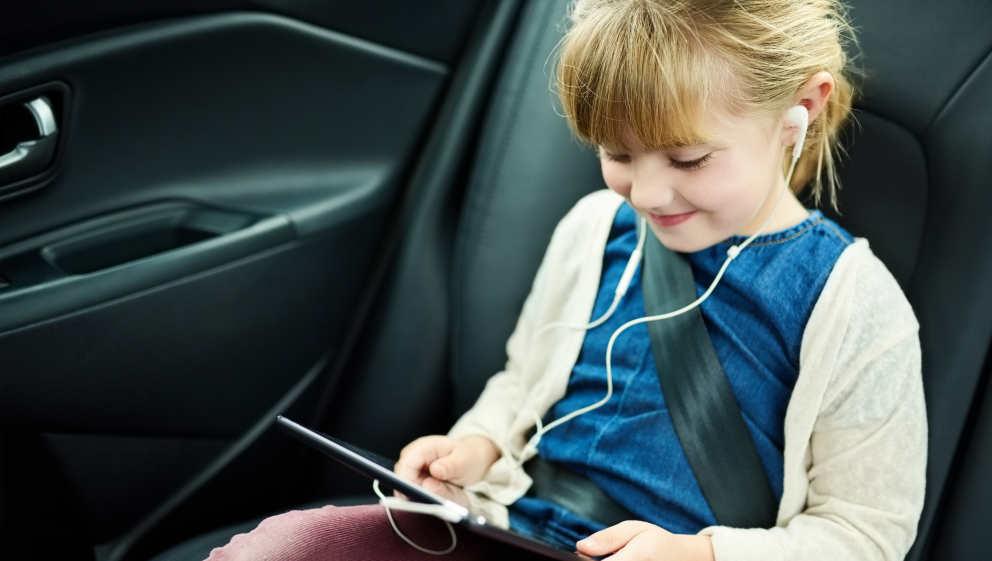Simon is a Gingerbread volunteer, helping to run our online group for parents of children with additional needs. He’s had lots of opportunities to travel in his working life, and has always enjoyed traveling with his children too. With the school holidays upon us, he shares his tips for stress-free travel with a neurodivergent family.
‘The biggest problems for us are crowds and noise. So traveling in our own car is easiest in a lot of ways. If your children get anxious going to the supermarket 10 minutes down the road, then you know you’re going to have a problem on a four-hour journey. But you can practise taking children for shorter trips and increasing their tolerance levels. I’ve built up to longer journeys over time.
Getting to your destination with the least amount of stress
Thinking carefully about the time you travel and planning your route in advance is really important. For example, if I’m going south from where I live in Manchester, I try to plan routes that avoid Birmingham. If you’re travelling to or from London, the A1 can be quieter than the M1.
If you’re planning a holiday in Europe, it’s worth considering Eurotunnel. The advantage is that you stay in your car, it’s contained, and much less stressful. Airports are always busy and people are rushing because they’re late.
When we’re flying, I plan ahead and research how accessible the airport is. Do they have quieter spaces to reduce sensory overload? Are there manual/ accessible gates that you can use instead of the facial recognition scanners (which can be scary if you find yourself on the other side from your child)? Will they fast-track people with autism or other needs? Some airlines offer priority boarding for people with additional needs but sadly, not all of them.
Planning ahead to make the journey easier
I do a lot of preparation with the children in advance too. Before my daughter’s first long-haul flight, we looked at YouTube videos of the insides of planes and airports. If I’m going anywhere new with the kids I’ll watch videos, download maps, find out as much as possible in advance. If you’ve got a rough sense of what the place is like, that reduces your stress and in turn the children will be less stressed too.
‘Planning ahead makes it seem like you’re in control, even if most of the time you’re winging it! You’ve got to keep a sense of humour too, because whatever you plan, there’ll be something unexpected’
I use a lot of electronic props for my children. We always make sure we have plenty of games and films downloaded onto iPads or phones for the journey. You can guarantee they’ll break or lose chargers or headphones, so have a backup if you can!
Finding something that sparks an interest
Now that my kids are older, they’re starting to react to my suggestions with that dreaded phrase ‘do we have to?’ But secretly they still enjoy it. My eldest really enjoyed a day trip around Hebden Bridge recently. We had a wander round the old mills, and chatted about the recent flooding and what had been done to alleviate it. Doing some research or thinking of something that will spark their interest makes all the difference – if you can connect a visit to a school project, a book they’ve read or some aspect of family history.
Familiar foods away from home
When it comes to food on holidays, my approach is: be kind to myself! Am I really going to cut up carrot sticks at a campsite? Familiarity is important for a lot of children – and a McDonalds Happy Meal is the same every time. Ikea is a good one if you’re driving abroad – they’re nearly always next to a motorway and the café is exactly the same in Europe as it is here. Of course, you want to give them healthy food, but on holiday why make things difficult?
Traveling with my children means breaking things down into manageable steps, planning ahead, and yes, winging it! It’s all about finding what works for you.’
‘For me, success is that moment when I can say: we’ve arrived, we’re fed, we didn’t kill each other, I’ve got a glass of wine and the kids have got the internet!’

